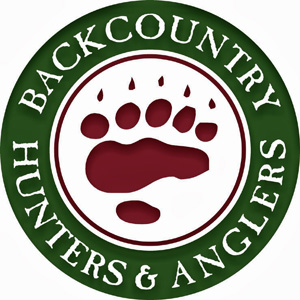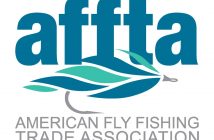 From BHA:
From BHA:
A coalition of sportsmen’s groups and businesses is presenting a new approach for gaining hunter and angler support for national monuments proposed under the Antiquities Act. Where appropriate and with the backing of local sportsmen, national monuments can help conserve public landscapes important for hunting and fishing.
In a new report, “National Monuments: A Sportsmen’s Perspective,” 28 groups and businesses, including Backcountry Hunters & Anglers, the Theodore Roosevelt Conservation Partnership and Trout Unlimited, outline a series of tenets for creating national monuments that are aligned with the intent of the Antiquities Act. Also featured in the report are profiles of existing national monuments where sportsmen played a supportive founding role.
“National monument designations offer a means to conserve large landscapes important to fish and wildlife and valued by sportsmen,” said Land Tawney, president and CEO of Backcountry Hunters & Anglers. “Numerous monuments are open to hunting and fishing, with recent designations – such as Berryessa-Snow Mountain in California and Organ Mountains-Desert Peaks in New Mexico – specifying that sportsmen can continue to pursue our passions within their boundaries.
“As the original conservationists, sportsmen are an important constituency in attracting public support of proposed monuments,” Tawney continued. “Oftentimes, we know these lands better than anyone else. We must participate in the initial discussion of any monument proposal and remain engaged as management designations are made.”
The sportsmen call for local involvement in management decisions, a stakeholder-driven public process that includes state and local governments, multiple use management, reasonable public access, state management of fish and wildlife resources and continued hunting and fishing opportunities, among other criteria.
“The Antiquities Act is a powerful tool, and sportsmen believe it should be used thoughtfully,” said Joel Webster, Western public lands director with the Theodore Roosevelt Conservation Partnership. “In a cooperative and productive spirit, sportsmen are defining when and how this tool should be used in places that are important for hunting and fishing. We encourage other invested citizens to come to the table and resolve public lands management issues with the same solutions-oriented attitude.”
“In places like Browns Canyon and Rio Grande del Norte, national monuments have proved to be an effective way to implement collaborative public land management solutions that conserve world-class hunting and fishing opportunities,” said Corey Fisher, senior policy director for Trout Unlimited. “In these instances and others, Congress failed to enact widely supported proposals, and the Antiquities Act provided a path forward to bring to fruition these community-driven initiatives.”
The report was officially released at Organ Mountains-Desert Peaks National Monument last weekend. Established in May 2014, Organ Mountains-Desert Peaks encompasses 496,330 acres and offers diverse hunting opportunities desert mule deer, mountain lion, javelina, waterfowl and quail. Sen. Martin Heinrich of New Mexico, an avid sportsman, attended the event, along with sportsmen, biologists and media members.
Sporting groups and businesses support the strategy outlined in the report. They include Abel, Airflo, American Fly Fishing Trade Association, Berkley Conservation Institute, California Waterfowl, Charlton, Echo, First Lite, Fishpond, International Federation of Fly Fishers, Mystery Ranch, Muley Fanatic Foundation, North American Grouse Partnership, onXmaps, Oregon Pack Works, Orion the Hunter’s Institute, Pheasants Forever, Professional Bowhunters Society, Pure Fishing, Quail Forever, Redington, Rio Products, Ross Reels, Sage and Wild Sheep Foundation, as well as BHA, TRCP and TU.
“Conserving quality public lands that will be permanently available to sportsmen and -women should be of the utmost importance to any outdoor company,” said Kenton Carruth, co-founder of First Lite, a hunting gear company. “Supporting monument designations that allow hunting and fishing and protect public lands is at the core of First Lite.”



